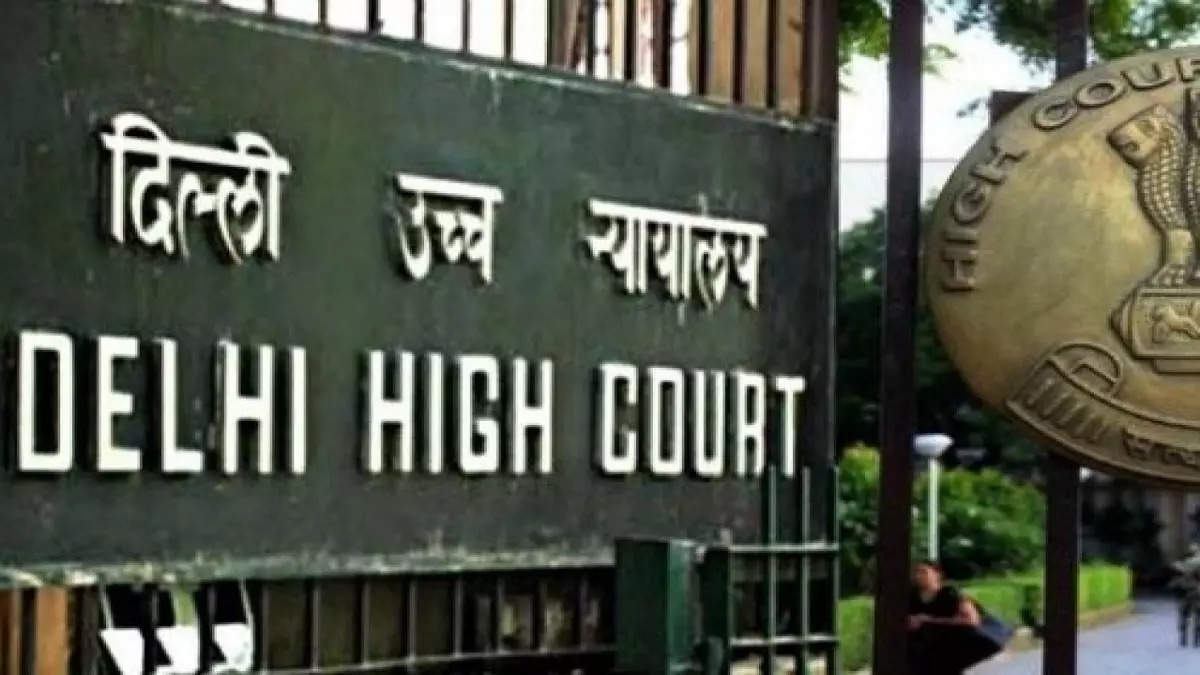The Delhi High Court recently comprising of a bench of Justice Poonam M. Bamba held that a person cannot be summoned for Investigation from outside territorial limits of his Station or adjoining Station by a Police Officer. (Jamshed Adil Khan & Anr v . Union territory of Jammu and Kashmir)
The bench observed it is clear from the straightforward interpretation of Section 160 CrPC sub-section (1) that a police officer can request information for the purposes of an investigation.
High court further observed that Section 160 CrPC can be issued by an investigating officer or the police person concerned to a person residing within his own jurisdiction and at the most in the adjoining police station surrounding that police station. The section does not need not need help of dictionaries or other judgement for understanding its meaning when there is no ambiguity and it is so clearly written either within his own police station.
Facts of the case
In this case, petitioner no. 1 is an investigative journalist who prepared a report regarding giving in adoption the children orphaned during Covid-19 for a price, which was published. Office of Sub-Divisional Police Officer Pampore, Union territory of Jammu & Kashmir issued the impugned summons to the petitioners no. 1 & 3 u/s 160 CrPC directing the petitioners to attend the office of Sub-Divisional Police Officer Pampore, within 2 days.
Learned Counsel for the petitioner submitted that notice under Section 160(1) of the Cr.P.C can only be issued to a person who is situated within the local jurisdiction of that police station or is within the adjoining police station. Therefore, a police station in Jammu and Kashmir could not have issued notice to the petitioners who are residents of Delhi and are outside the jurisdiction of the Respondent no. 2 office.
Learned Counsel for the respondents submitted that, nothing stops the investigating agency to require the attendance of a person acquainted with the facts and circumstances of the case.
Courts Observation and Judgment
The bench at the very outset observed, "From the plain reading of the sub-section (1) of Section 160 Cr.P.C, it is evident that for the purposes of investigation, a police officer can require attendance of a person situated within the limits of his own police station or that of the adjoining police station and not someone who is situated beyond the said territorial limits."
The bench made a reference to the judgment dated 27.07.2010 of a Co-ordinate Bench of this court in a similar case in Ravinder Singh V. State and Anr. W.P. (Crl.) No. 971/2010. In that case, while quashing the summons, this court held that:
"Reading of this Section makes it abundantly clear that notice under Section 160 Cr.P.C can be issued by an Investigating Officer or the police person concerned to a person residing within his own jurisdiction and at the most in the adjoining police station surrounding that police station. There may be 10 police stations adjoining that police station....
The Section does not need help of dictionaries or other judgments for understanding its meaning when there is no ambiguity and it is so clearly written either within his own police station or in the adjoining police station. I, therefore, consider that summons issued to the petitioner under Section 160 Cr.P. C in Delhi. which is not adjoining the police station of Rewari is without jurisdiction and the notice is. therefore. quashed."
The bench referred to another judgment of this court in Directorate of Enforcement & Ors. v. State of West Bengal & Ors. [WP(Crl) No. 1768/2021], wherein it was observed in para 27 as under:
"27. By a mere reading of the said provisions, it becomes apparent that the power of the Police Officer to require the attendance of a witness is circumscribed by the words "within the limits of his own or any adjoining station". It is to be noted that if the said power was in the nature of pan-India power, as has been sought to be argued by the respondents, there was no reason for the Legislature to use the terminology quoted above. To the contrary, if the same was the intention of the Legislature, the Legislature would have clearly stated so and bestowed unlimited jurisdiction on the Police Officer by using terminology in the nature of "anywhere in the country" or even "anywhere within the State". The clear departure of the Legislature and the use of the terms “within the limits of his own or any adjoining station" points towards a legislative intention to limit the jurisdiction in this regard . .. "
The bench disposing the petition remarked, "In view of the above facts and circumstances, the petitioners being residents of Delhi and having their office addresses of Noida, U.P, could not have been summoned under Section 160 Cr.P.C by Sub Divisional Police Officer, Pampore, Union Territory of Jammu and Kashmir. The summons issued to them were without jurisdiction and are therefore, quashed. However, this shall not come in the way of the investigating agency to examine the petitioners as per law at Delhi, if so required. Nor shall quashing of the impugned summon have any reflection on the merits of the case."
Read Judgment ;
Social media is bold.
Social media is young.
Social media raises questions.
Social media is not satisfied with an answer.
Social media looks at the big picture.
Social media is interested in every detail.
social media is curious.
Social media is free.
Social media is irreplaceable.
But never irrelevant.
Social media is you.
(With input from news agency language)
If you like this story, share it with a friend!
We are a non-profit organization. Help us financially to keep our journalism free from government and corporate pressure














0 Comments